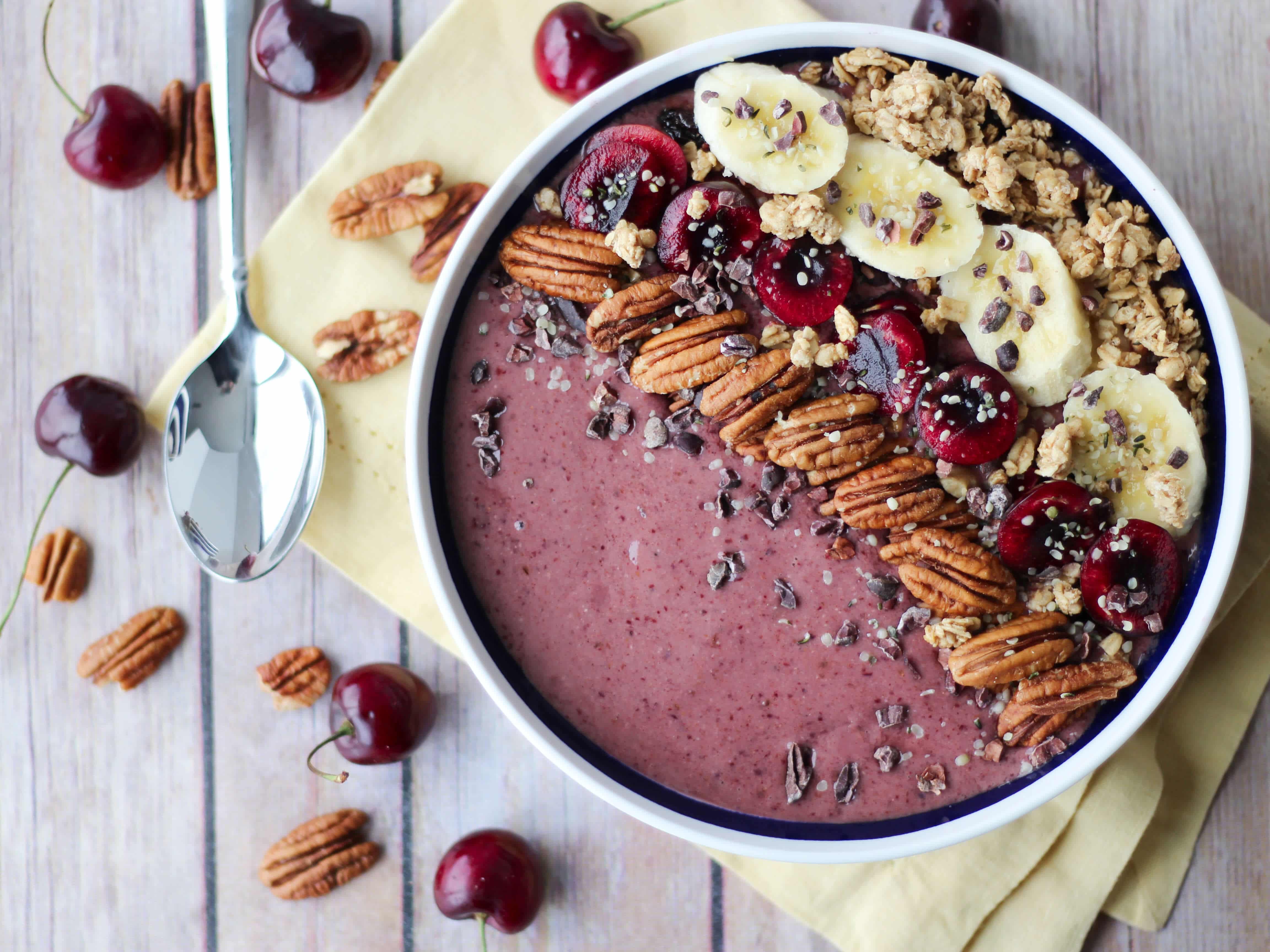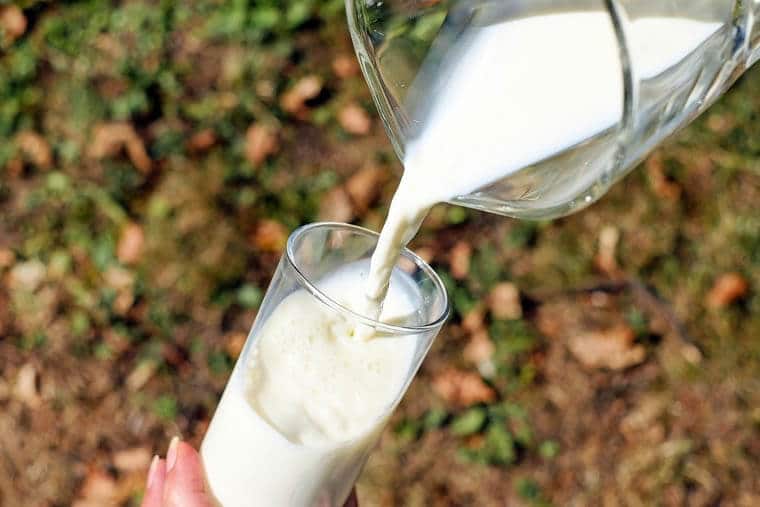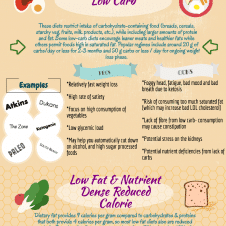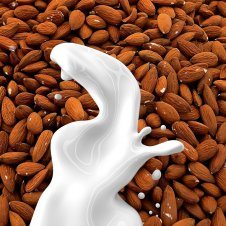I discuss new research on the health benefits on probiotics and prebiotics and discuss how healthy gut bacteria is important for digestive health.
We have talked about some tasty fermented foods before, but today I wanted to just simply things and clear up any confusion about the difference between probiotics and prebiotics and discuss in more detail about the health benefits of probiotics and prebiotics.
Become an Abbey’s Kitchen Subscriber
What are Probiotics?
First a refresher on probiotics. Our gut houses the largest number of bacteria in our body, and a large proportion of that is known as “good” bacteria. Probiotics are the “good” bacteria that we need to promote good balanced health. Here are some of the known benefits of probiotics.
PROBIOTICS and lactose intolerance
Good news for dairy lovers, probiotics may improve lactose intolerance! Back in 2010, an SLR (systematic literature review) was conducted to review effective management strategies for lactose intolerance. They looked at 7 RCTs that evaluated the use of probiotics in yoghurt and milk at improving symptoms of lactose intolerance. Overall, there was insufficient evidence to conclude symptoms improved after probiotic use, however, there were a few limitations. First of all the trials were small – only included 9 to 28 people. Second of all, the study assessed lactose malabsorption through a hydrogen breath test. In all the studies except one, hydrogen breath tests were included and no reports of symptoms improvement were included which limits the effectiveness of probiotics.
Since 2010, there have not been any SLRs evaluating the effectiveness of probiotics on symptoms of lactose intolerance. However, in 2016, a 12-week RCT (randomized control trial) studied the consumption of a specific probiotic strain (lactobacillus acidophilus) by individuals experiencing lactose intolerance. Within four weeks, the group receiving the placebo experienced worsened symptoms compared to the group receiving the strain of probiotics. Evidence has found that some individuals who are lactose intolerant can tolerate yoghurt due to the presence of lactase which is produced by probiotic bacteria. In another clinical trial, they studied the effect of lactase on lactose absorption and found that individuals who ate yoghurt absorbed more lactose compared to individuals who drank milk. It seems the bacterial lactase can withstand the acidity of the stomach better since it is encased in bacterial cells. The RCT found that the specific strain of probiotics was able to improve GI symptoms of lactose intolerance including diarrhea, abdominal cramping and vomiting. However, future RCTs and an SLR are needed to confirm the use of this strain on improving symptoms of lactose intolerance.
PROBIOTICS and Heart Health
A 2016 meta-analysis pooled together 14 RCTs to assess the effect of probiotics on individuals with normal, borderline and high cholesterol levels who were not on cholesterol-lowering drugs. This meta-analysis witnessed a significant reduction in total cholesterol levels among individuals who consumed probiotics compared to the control group. Of these studies, 6 trials showed a statistically significant decrease in total cholesterol levels and four of the trials saw that reduction in LDL-cholesterol. HDL-cholesterol and triglyceride levels were not changed by probiotic consumption. One limitation to note is individuals were given high dosages of probiotics which would be too high to be used on a regular daily basis, so future studies must test the use of probiotics in small amounts over a longer period of time. The researchers did mention that the effect of probiotics on cholesterol is certainly not as strong as cholesterol-lowering medications, but for individuals who experience severe side effects from meds, and prefer a non-drug treatment, probiotics may be an option to significantly lower cholesterol levels and reduce their risk of developing CVD.
A recent systematic review gathered nine RCTs to assess the role of probiotics at reducing blood pressure. Overall, the study results revealed that probiotics consumption may help reduce your systolic blood pressure by 3.56 mmHg and your diastolic blood pressure by 2.38 mm Hg. In terms of the type of probiotics, fermented dairy products were the most effective at reducing blood pressure compared to other sources of probiotics (capsules or rose-hip drink). That may be because there were not enough trials using alternate forms of probiotics, so future studies are needed to make a case for the best source of probiotics at reducing blood pressure. Another interesting note from this review is that trials using a variety of species of probiotics were more effective at reducing blood pressure than trials using only one type of probiotic.
So what’s the mechanism behind this? Many believe probiotics may aid in the production of angiotensin-converting enzyme, which is essential in regulating our blood pressure through a process known as the renin-angiotensin system.
PROBIOTICS and Immunity
A lot of the research in the area of immunity and probiotics comes from animal studies at this point, but is still worth bringing up. A recent 2017 study administered probiotics in 15 piglets and found that their weight increased, and their diarrhea decreased compared to the control group. The study also found that certain proteins and an antibody involved in immune responses increased significantly compared to the control group.
Well, what about human studies?
In one study, researchers found that the gut of individuals who consumed probiotics induced different gene expressions in their intestinal lining compared to the control group. In another study, they provided probiotics to individuals suffering from esophagitis and found that the probiotic promoted the expression of a variety of genes involved in our immune responses and inflammation. This research is premature, and there must be more research done on humans (healthy and those with chronic diseases) to understand the mechanism and its effectiveness on treating or preventing disease.
Because of the potential association between probiotics and our immune system, there has been some early research on the use of probiotics to reduce allergy symptoms. Most of the research has been on animals, and the research on humans is very limited. Only a few studies saw improvements in allergy symptoms, however, we do not yet know the long term effects or if providing probiotics to pregnant women might prevent the onset of allergies.
PROBIOTICS and Inflammation
A study conducted on mouse with colitis, found that lactobacillus (probiotic strain) supplementation increased the promotion of an antioxidant enzyme which reduced the oxidative stress (which causes the inflammation) in their intestinal wall and reduced colitis symptoms. Granted, this was only done on mice, this may be a possible route for more study on individuals suffering from IBD which may help in reducing the oxidative stress and thus reduce IBD symptoms.
In humans, two small anecdotal trials and larger randomized controlled clinical trials have shown some use for IBD like Ulcerative Colitis with certain probiotic strains. Escherichia coli Nissle may help maintain remission for at least 1 year in patients who have colitis. More recently, trials were published that tested a probiotic product called VSL#3 (VSL Pharmaceuticals, Inc.), which is a combination of 8 probiotics. This one also has shown some efficacy for inducing remission in Ulcerative Colitis. Still, we need many more trials to identify which strains induce long term remission and exactly how much would be needed to see those results.
PROBIOTICS and BONES
Most of the studies on probiotics and bone health have come from the poultry industry. One study on broiler chickens found that when given probiotics, they experienced increased nutrient availability and an increase in the lateral and medial walls of their tibia bone. Other research has looked at the role of probiotics in treating or preventing bone loss caused by periodontitis (inflammatory disease that affects tissue surrounding teeth). One study revealed that the use of probiotic therapy reduced bone loss in rats experiencing periodontitis and protected their intestines from the inflammation. An interesting discovery from this was that stress may interfere with the effectiveness of probiotics.
Probiotic treatment was also studied on elderly patients in a 2016 study. This RCT included 417 elderly patients with acute distal radius fracture where half of them received regular milk and the other half got milk with added probiotics. The study found that individuals who received probiotics exhibited significantly faster rate of improvement compared to those who received the placebo. Future research must look at the role of probiotics in healthy individuals and its long term use at promoting bone strength and/or preventing bone loss.
PROBIOTICS and regularity
Evidence has shown that these fermented foods can alleviate constipation to get things going like clockwork. A 2016 RCT studied the use of probiotics with 60 constipated pregnant women. Half of these women received yoghurt enriched with 300g of two strains of probiotics and the other half received non-enriched yoghurt (control group). After four weeks, the probiotic group experienced a significant increase in defecation compared to the control group.
The use of probiotics is often prescribed for managing IBS symptoms because of its impact on the gastrointestinal system. A systematic review and meta-analysis found that probiotics are an effective treatment for IBS, however it is still unclear on the type and number of strains of probiotics that are beneficial at being the most effective. Another systematic review confirmed these findings, but also stated that future research on specific probiotic strains, doses and duration of its use are needed to appropriately compare their effects on human health.
PROBIOTICS and WEIGHT loss
Can probiotics and the gut dictate our body weight and shape? Let’s find out. A famous animal study comparing lean and obese rat twins revealed there exists difference in the types and number of bacteria in the gut. In individuals considered “obese”, they had less diversity in their gut bacteria. Remember, this was only done on rats.
So what about human studies? A systematic review included a variety of RCTs on humans, and they concluded that probiotics did not have a significant effect on body weight and BMI. Our diet is having a huge influence on out gut function and the type and amount of bacteria present, however for the time being, that might be the only association. Sticking to a balanced healthy diets, is the best way to cultivate that good bacteria in our gut and not just relying on probiotics to do that for us.
PROBIOTICS AND GLYCEMIC CONTROL
New evidence suggests probiotics may help with glycemic control to decrease the risk of metabolic diseases such as obesity, diabetes, and cardiovascular disease. A 2015 systematic review assessed 17 RCTs that studied the effect of probiotics on fasting blood sugars, fasting insulin and insulin resistance. To summarize the review, probiotics significantly reduced fasting blood sugars, insulin and insulin resistance. This research is preliminary, but since we know that insulin plays a huge role in weight, diabetes and other chronic diseases, probiotics may be a useful tool in maintaining normal blood sugars. Early research on rats with diabetes found that probiotics supplementation improved glucose metabolism, lipid levels and delayed hyperglycemia. Down the road, probiotics may be recommended to manage symptoms in individuals with diabetes. Until then, more research is needed to confirm the type, dosage and length of supplementation of probiotics for the best results.
PROBIOTICS AND ANXIETY
Emerging evidence has shown that probiotic supplementation may reduce anxiety and depression symptoms. Rodent-based studies have seen interactions between the central nervous and the gut through something called the gut-brain axis. Research in this area explains the mechanism behind this as a potential signalling pathway from our gut to brain through our endocrine system. Evidence has suggested that the cells in our gut can interact with neurons on our brain which can regulate our mood and stress-related behaviours. Kinda geeking out here, guys.
Aside from the evidence from rats and pigs (which is not great), a recent systematic review tested this hypothesis on healthy adults as well as individuals suffering from a variety of psychological disorders. In healthy adults, a few studies reported reductions in depressive or anxiety symptoms among the probiotic treated group versus the placebo control group. Another study reported a significant reduction in symptoms in a group of subjects after four weeks of probiotic supplementation. However, other studies may have seen slight reductions but were not statistically significant enough to make a strong case. In individuals suffering from major depressive disorder, one study found that probiotic supplementation improved symptoms, while another found no difference. Ultimately, there are a number of limitations from this review like small sample sizes and the fact that a consistent probiotic strain, concentration and dose wasn’t used.
PROBIOTICS AND MIGRAINES
Aside from psychological disorders, a recent literature review assessed the gut-brain relationship by revealing a higher prevalence of headaches in patients with gastrointestinal disorders. Researchers believe there is a potential link between the use of probiotics at reducing the frequency and severity of migraine headaches. This is early research, since no RCTs have yet to be done, however will most likely start be done to evaluate its clinical efficacy.
WOAH. That was a lot. Clearly, we’re really just scratching the surface understanding all of the roles probiotics play in health, so I’m always trying to stay on top of the latest research.
So where do we find Probiotics?
Look for fermented foods! Fermentation is a beautiful process where we convert sugars to acids, gases and alcohol to preserve food. In the process, you get a wide range of beneficial enzymes and probiotics. Examples of fermented foods like yoghurt, sauerkraut, tofu, pickles, beer, wine and the trendiest of drinks: kombucha. You can find lots of yummy ideas for fermented foods here!
So What are Prebiotics Then…?
What the what? Prebiotics set the stage for gut health. They are parts of certain foods that we cannot digest, and they “feed” the good bacteria in our gut. You can get your prebiotic fix by eating foods like bananas, onions, garlic, leeks, asparagus, artichokes, sunchokes, chicory root, soybeans and whole wheat foods which contain small amounts of these indigestible bacteria chow.
When you think about probiotics and prebiotics, you have to think of them as a team. Prebiotics are the trusty sidekick to probiotics that makes them even more bad ass. Variety in our diet is key, so instead of chugging back kombucha all day, throw some bananas on your yoghurt and you’ll get a super- duper-gut-protecting-health-promoting-hero.

Now, I want to know:
What are some of your burning toilet question?
Do you try to get more prebiotics and probiotics?
Leave me a comment below!
Collaboration with Sofia Tsalamlal, RD
Updated on October 23rd, 2020

Abbey Sharp is a Registered Dietitian (RD), regulated by the Ontario College of Dietitians. She is a mom, YouTuber, Blogger, award winning cookbook author, media coach specializing in food and nutrition influencers, and a frequent contributor to national publications like Healthline and on national broadcast TV shows.









Liz @ I Heart Vegetables says
I eat a lot of yogurt and I love kombucha but i didn’t realize how prebiotics work together with probiotics! That’s so interesting!
Abbey Sharp says
love kombucha too!
Chrissy @ Snacking in Sneakers says
What a great overview of all the science behind probiotics and health issues! This is an area I haven’t stayed as up to date in as I’ve wanted to, so I found your post SO helpful to review.
Abbey Sharp says
Oh wonderful!
Adrien Paczosa says
Such great information! And looking forward to adding in more probiotics to my life now!
Abbey Sharp says
That’s great!
Alysa Bajenaru, RD says
Such a great article! I love getting probiotics from fermented food. It’s fun to make my own when I have the time.
Abbey Sharp says
Yes, exactly!
Jodi @ Create Kids Club says
More great information said in an easy to digest manner 😉 Thanks for the info!
Abbey Sharp says
Thanks for the love 🙂
Katie Cavuto says
Great post! Thanks for sharing this info, Abbey!
Abbey Sharp says
You’re welcome!
Lindsey Pine says
Great post Abbey! Probiotics are such a hot topic this year!
Abbey Sharp says
Truly! And so important for overall health.
Jessica @Nutritioulicious says
Great post Abbey! Such a great overview of probiotics and gut health!
Abbey Sharp says
Thanks Jessica!
Amber says
Is there a prebiotic/ probiotic mix from a reputable company that you recommend? I’m thinking of taking some when travelling for long periods. Is this worthwhile?
Abbey Sharp says
probiotics while travelling is always a good idea. I like renew life’s products (they have shelf stable ones), but not sure if they have a prebiotic/probiotic mix, or if that would be advised.
Betsy Ramirez says
Such great info, Abbey! I am pinning for future reference! Thanks!
Abbey Sharp says
Yaya! Thank you 🙂
Lauren O'Connor says
Very informative. Love all this good info, studies and all. And simple way to clear up the confusion on just what these do for our gut (and overall health).
Abbey Sharp says
thanks!
Roxana says
Very thorough. Great information and research.
Abbey Sharp says
🙂
Kristina @ Love & Zest says
This is some great information. I am hoping that more studies with a larger group of participants will be done in the future. In the meantime, thanks for doing this research for us! This is great information to have out there and can definitely be confusing for those who are not familiar with the workings of the gut.
Abbey Sharp says
Yes! It’s definitely a starting point until larger studies come out! We’ll talk then!
Kelly Jones says
Perfect post to consolidate all this great info! I am especially excited about their role in mental health/stress/anxiety as I see so many athletes and active individuals with high stress lives. Connections with eating disorders have been found as well!
Abbey Sharp says
Yeah! Very fascinating area. Thanks for sharing
Alysa Bajenaru, RD says
Wow, this is a really informative post! I love getting probiotics from fermented drinks. Gut Shot is my favorite (ginger beet flavor).
Abbey Sharp says
Yum, sounds like a lovely flavour
Stacey Mattinson says
Oo love this. Prebiotics vs probiotics can be super confusing and there is constantly new research. Awesome!
Abbey Sharp says
Yes totally. Gotta stay on top of all that!